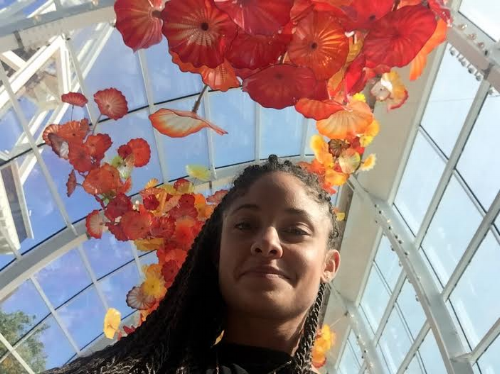SEED 2016: Seattle!
Gabby here!
I am so grateful to have been given the opportunity to learn a great deal at the National SEED Project this past week. SEED charges itself with "creating conversational communities that drive change" and then trains facilitators. The newly trained facilitators (now me!) go back to their communities and continue the work of creating a space for intentional conversations.
I had an incredible time spending a week with the facilitators of SEED. There are so many layers to the program and so much that I am processing that I am not currently able to explain.
However, below are some key takeaways that I will be bringing back to my classroom (and life) from all of the amazing people and the awesome work we did at SEED Seattle 2016!
1. "Windows" and "Mirrors"
SEED uses windows as a way of seeing into a perspective that is new to you, and mirrors as getting to see yourself. We used this terminology to reflect on other's stories. Regardless of whether or not something was a window or mirror, taking the space to notice windows and mirrors was valuable and bonded us. It also sparked a lot of conversations within our community. In the classroom, I cannot wait to use this language and framework with the students. We believe good teaching is when students constantly get to see windows and mirrors of themselves and others!
2. Let it get messy (and REALLY LET IT!)
We did so much self reflective work at SEED. Sometimes the reflection or conversation was joyous, sometimes painful, and always personal. In retrospect, I am so grateful for our facilitators who gave space and modeled leaning into arguments, confrontation, and taking the time and space to try again. I re-learned that while something can feel like a huge mess, that mess is actually one of the most valuable ways to reflect, analyze, and really truly learn something. We did some great learning as a group from the messes we made and then worked through together. More messes, please!
3. Timers.
They are uncomfy, rigid, and a little stressful. HOWEVER, they give space for more voices (or all voices) to be heard, and they can create an automatic space for airtime. Big fan.
4. Serial check ins.
This just means going around the entire group to see how everyone is doing or what they are thinking. These are done before a meeting or class period and end the period as well. I loved serial testimony as a way of hearing all voices. You need a timer for this or the prompt "one word or phrase..." in order for it to be efficient and effective. People can always "pass," but I loved knowing where everyone in the group was at. Sometimes, during a serial testimony, one person would say "Hopeful!" and another person during that same check in would say "Hurt". I found it important for the entire group to be aware of those differences and valuable as a teammate and community member.
5. More check ins.
I am now a huge proponent of setting time to check in with one another, and remind students (colleagues, peers.. Family members!) to circle back to one another.
Check ins can be about anything, for example check in about...
… something they said... (maybe a microaggression or something offensive?)
… consent to hug one another or touch someone's back...
… an odd signal you got from someone..
… how they are feeling...
More check ins all around, please! Check ins promoted honesty, personal growth and reflection, and ultimately more intimate relationships for me at SEED.
Finally, I want to leave you with one of my favorite quotes from the training and Founding Co-director Emily Style's observation in 1981 and 2014 publications that,
"Half the curriculum walks in the room with the students, in the textbooks of their lives"
And that's it for now!
Sending love out to all the amazing people I met at SEED last week! I am looking forward to co-facilitating a faculty SEED group at our school this year. Check back and see how I am doing and new reflections I have!


